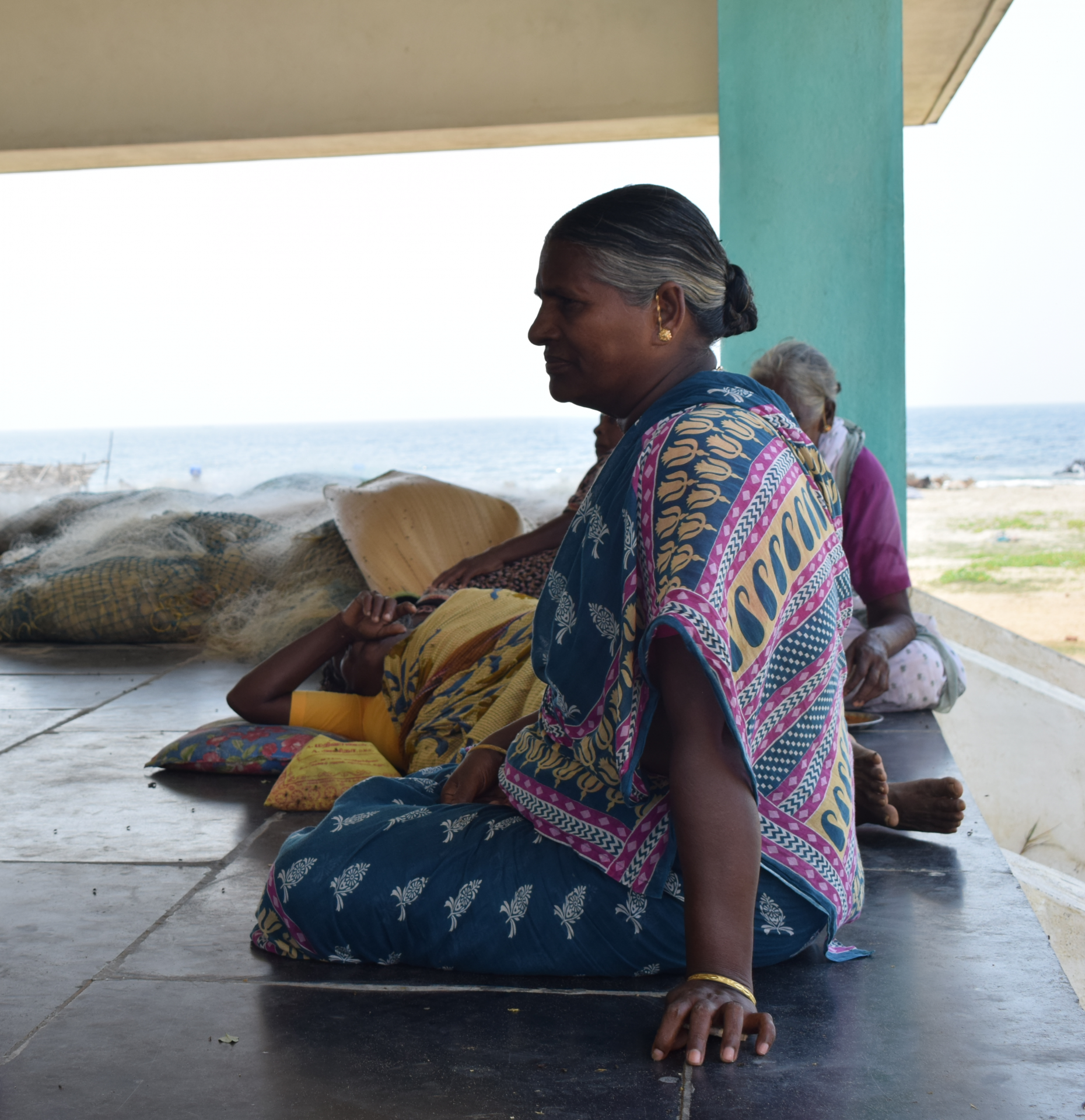Resting in the shade (Credit: Nicolas Bautès)
A group of women resting in the shade on a morning in May 2019, after returning from selling fish in the neighbouring villages (Pettodai, Cuddalore, India).
Ethnographic documentation Bhagat Singh, Arunkumar S., Mehala S.
Yelaayi is a fish vendor from Pettodai, a small fishing hamlet on the Cuddalore Coast. She was a mere seventeen years old when she started selling fish. Speaking to us in her early fifties now, Yelaayi continues to sell fish, procuring what she can in an auction from the catch of her village. On lean days, she goes to the Annankovil harbour, a few kilometres away, to get her fish.
Taking public transport is not pleasant for fish vendors like Yelaayi as the bus drivers resent fisherwomen for the foul smell and dirt they leave behind. Nonetheless, she relentlessly moves from one village to the next, carrying her load on her head until she manages to sell all the fish in her basket. The scorching sun of the eastern Indian coast cannot stop fish vendors from their daily work as they bear the responsibility of feeding their families. Single woman fish workers like Yelaayi are many and fiercely independent, navigating spheres of work and life dominated by men.
‘…women like us were always at home, doing only household chores. But she decided on her own to go solo and has transformed into the highly confident and assertive individual that she is now’, says Vasuki, her kin, sitting beside her. ‘You just have to look at her face, and you can see the courage and confidence of a working woman. We are of the same age, but I look much older than her. She is vibrant and looks young because she works’, adds Vasuki, proud of Yelaayi.
For Yelaayi, selling fish has become part of her life and she has hardly any regrets. ‘… while selling fish in the agricultural villages, they ask us to clean the fish, when they buy from us. We fisherwomen tend to do this as a favour. But I no longer do it because they pay only for the fish but not for the labour of cleaning the fish’. Yelaayi refers to her growing quest for dignity among fisherwomen who are not always treated with respect and kindness by the consuming public.
